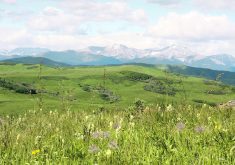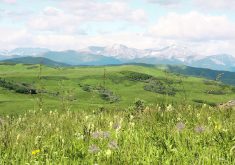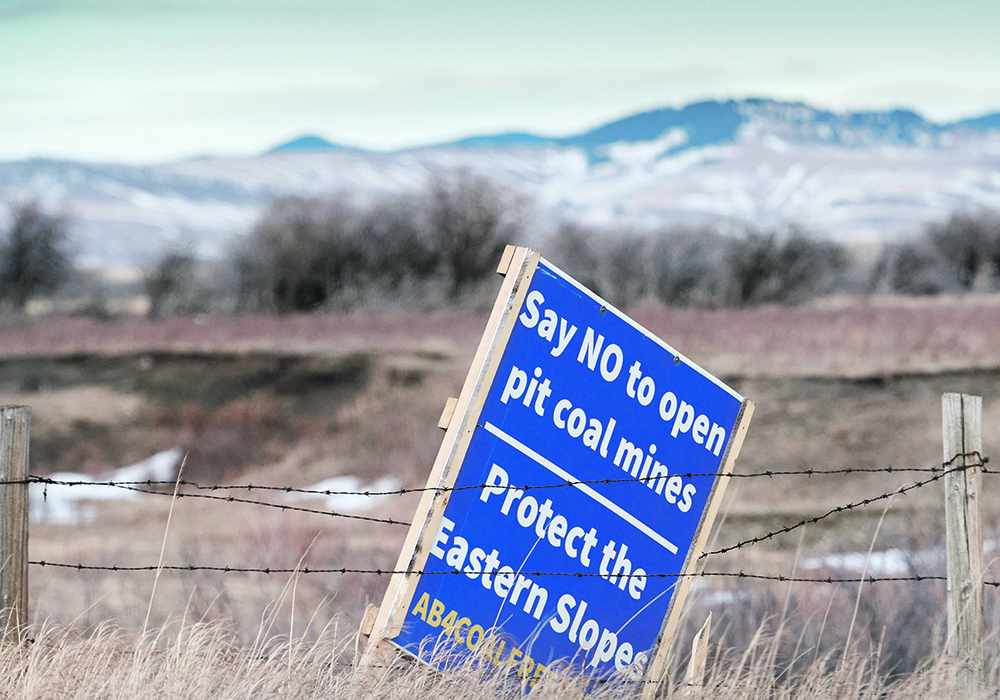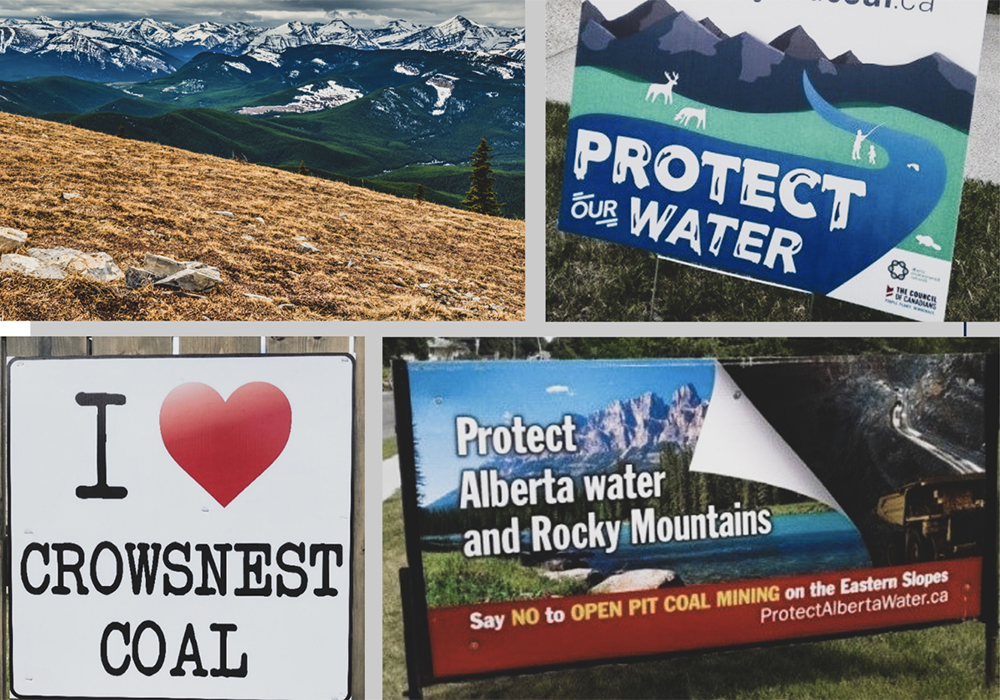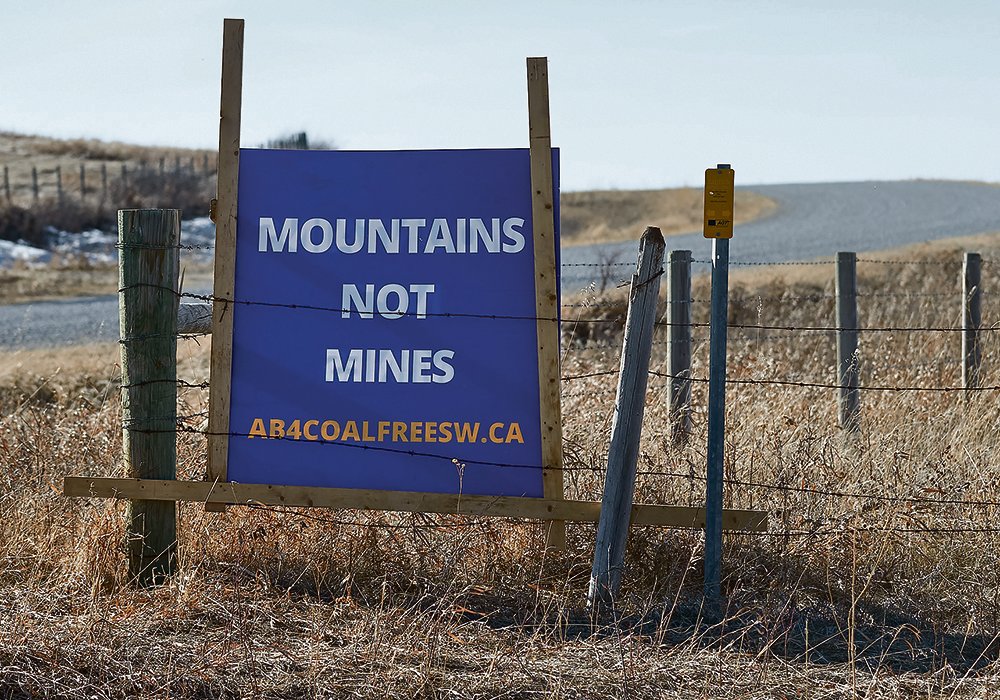High River endorses a proposal that would permanently ban new exploration and mine development in the province
High River has become the first municipality in Alberta to endorse a proposal backed by 30 organizations seeking to ensure new coal exploration and new coal mines are permanently banned in the province.
“No plan currently presented effectively addresses all concerns that have been raised by Albertans; this includes reclamation liability, exploration, the mine financial security program and most importantly, an outright ban of all further coal activity,” said Mayor Craig Snodgrass in a statement endorsed by the organizations.
“These can and should be dealt with now, not left for a later date during land-use planning.”
Read Also

Canadian Food Inspection Agency extends chronic wasting disease control program consultation deadline
Date extended for consultation period of changes to CWD program
The proposal, which is called A Coal Policy For Alberta — 2022 and Beyond, was backed by groups ranging from Trout Unlimited Canada to the Canadian Association of Physicians for the Environment.
It is a response to a ministerial order announced March 4 by provincial Energy Minister Sonya Savage. She restricted new coal exploration and development across the Eastern Slopes of Alberta’s Rocky Mountains.
“Land-use planning is important work that takes time,” said Savage. “That’s why the new ministerial order that I’m announcing today will remain firmly in place to protect the Eastern Slopes until the necessary planning is completed.”
Savage said the region is “important for headwater protection, fish and wildlife habitat, as well as for recreation, tourism, cultural practices, forestry, minerals, agriculture, and more.” It contains the headwaters of the Saskatchewan River system, which supplies water for everyone from producers to communities across much of the Prairies.
Integrated land-use planning discussions were slated to begin soon that will include land categories under a provincial coal policy that dates to 1976, said Savage. “Over the longer term, it will be followed by development of new regional, subregional or issue-specific plans for other areas developed under the Alberta Land Stewardship Act or other legislation.”
However, nothing prevents the provincial government from overturning the order at any time, said Laura Laing of the Plateau Cattle Co. The ranch near Nanton, Alta., is one of the organizations supporting A Coal Policy For Alberta — 2022 and Beyond.
“There has never been a formal ‘no’ to coal, and so that makes us pretty darn uncomfortable,” said Laing. “And what we see is still a lot of pro-coal messaging, we still see the foreign coal companies lobbying, so that’s concerning, right?”
Snodgrass said during an earlier interview that Premier Jason Kenney told him Jan. 13 the premier is an “unapologetic supporter” of coal development in the Eastern Slopes. The Eastern Slopes Protection Act, which was a private members bill by the opposition Alberta NDP, was killed March 22 after government members of a legislature committee voted against it.
A Coal Policy for Alberta — 2022 and Beyond was released on the second anniversary of the Alberta government’s decision May 15, 2020, to rescind the 1976 coal policy. The government made the move without public consultation, opening much of the Eastern Slopes to potential open-pit coal mining.
It raised fears about issues such as water allocation as well as contamination due to potentially toxic levels of selenium from coal mining, sparking widespread opposition.
As a result, the Alberta government reinstated the 1976 coal policy last year and launched an independent committee to gather public input for a new policy. A report summarizing the input was released March 4 by the provincial government along with a final report containing the committee’s recommendations.
Although the committee’s efforts “resulted in a clear record of public opinion,” the order failed to permanently protect the Eastern Slopes, said the statement endorsed by the 30 organizations. “Instead, the government simply put coal development on hold, reinstated the 1976 coal policy and deferred the final decision on the future of coal development to land-use planning.”
The statement said this “is not sufficient to address the issues of today; Alberta needs a modern, all-encompassing policy to protect the Eastern Slopes now and into the future.”
Besides no new coal exploration or coal mines, A Coal Policy for Alberta — 2022 and Beyond seeks to ensure the adequacy of the current mine financial security program is assessed. It would also “ensure timely and effective remediation of lands disturbed by coal exploration and mining activities.”
As a rancher, Laing said people in agriculture think in terms of generations, not just election years. Coal mining in the Eastern Slopes will “just be devasting to irrigation, to sugar beets, to crops, to cattle, all of that … Coal has been part of Alberta’s history, and there’s some pride in that, but it’s not in our future.”
To view A Coal Policy for Alberta — 2022 and Beyond, visit www.acoalpolicyforalberta.com.




